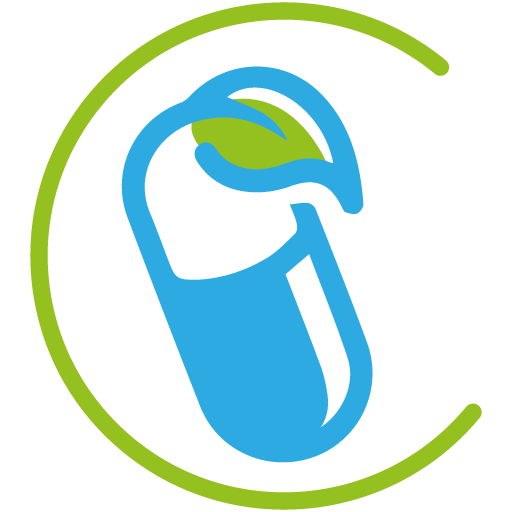Attention Deficit Hyperactivity Disorder (ADHD) is a neurodevelopmental disorder that affects people of all ages, impacting their ability to focus, control impulses, and manage energy levels. This disorder often presents challenges in academic, professional, and personal aspects of life. However, with a comprehensive understanding and effective strategies, individuals with ADHD can navigate these challenges and harness their unique strengths.
Defining ADHD
ADHD is characterized by persistent patterns of inattention, hyperactivity, and impulsivity. While the symptoms may manifest differently in each individual, they generally fall into two main categories: inattentiveness and hyperactivity-impulsivity.
Inattentiveness symptoms may include:
- Difficulty sustaining attention in tasks or play activities
- Frequent careless mistakes in work
- Forgetfulness in daily activities
Hyperactivity-impulsivity symptoms may include:
- Inability to stay seated in situations where it is expected
- Excessive talking and interrupting others
- Impulsive decision-making with little regard for consequences
Diagnosis and Treatment
Diagnosing ADHD involves a comprehensive evaluation, considering the individual’s history, behavior, and symptoms. Various medical and psychological assessments help determine the presence and severity of the disorder.
Treatment for ADHD often includes a combination of behavioral interventions, psychoeducation, and, in some cases, medication. Stimulant medications like methylphenidate and amphetamine salts are commonly prescribed to manage symptoms by affecting neurotransmitters in the brain.
Challenges and Impact
Living with ADHD can be challenging, as individuals may face difficulties in academic settings, professional environments, and personal relationships. Common challenges include time management issues, impulse control problems, and struggles with organization and planning.
Academic Challenges:
- Difficulty focusing in class
- Procrastination and time management issues
- Impulsivity affecting test-taking and assignments
Professional Challenges:
- Difficulty with multitasking and time management
- Impulsivity in decision-making
- Struggles with organization and meeting deadlines
Personal Challenges:
- Relationship difficulties due to impulsivity and inattention
- Low self-esteem and frustration
- Social challenges and potential isolation
Coping Strategies for Individuals with ADHD
While ADHD poses challenges, many individuals with the disorder develop effective coping strategies to navigate their daily lives successfully. These strategies can be applied in various aspects of life to enhance focus, manage impulsivity, and improve overall well-being.
1. Time Management Techniques:
- Use timers and alarms to stay on schedule
- Break tasks into smaller, more manageable steps
- Prioritize tasks based on urgency and importance
2. Organizational Strategies:
- Use calendars and planners to track appointments and deadlines
- Implement a structured routine to create predictability
- Declutter and organize living and workspaces
3. Behavioral Interventions:
- Cognitive-behavioral therapy (CBT) to address negative thought patterns
- Biofeedback to improve self-regulation and focus
- Social skills training to enhance interpersonal relationships
4. Medication Management:
- Work closely with healthcare professionals to find the right medication and dosage
- Monitor and adjust medication as needed
- Combine medication with behavioral strategies for comprehensive treatment
Support Systems
Building a strong support system is crucial for individuals with ADHD. This includes support from family, friends, teachers, and mental health professionals. Understanding and empathy from those around them contribute significantly to their ability to cope and thrive.
Family Support:
- Educate family members about ADHD to foster understanding
- Encourage open communication and expression of feelings
- Collaborate on strategies for managing challenges
Educational Support:
- Work with teachers to create an accommodating learning environment
- Implement Individualized Education Programs (IEPs) or 504 Plans
- Provide additional resources or tutoring when needed
Professional Support:
- Disclose ADHD to employers and discuss potential workplace accommodations
- Utilize tools and technology to enhance productivity
- Seek mentorship or coaching for professional development
Embracing Strengths
While ADHD presents challenges, it’s essential to recognize and celebrate the strengths that often accompany the disorder. Many individuals with ADHD possess creativity, resilience, and a unique ability to think outside the box. By embracing these strengths, individuals can build on their talents and contribute meaningfully to various aspects of life.
Creativity:
- Pursue creative outlets such as art, music, or writing
- Channel creativity into problem-solving and innovation
- Explore careers that value creative thinking
Resilience:
- Cultivate a growth mindset to overcome challenges
- Learn from setbacks and view them as opportunities for growth
- Celebrate achievements, no matter how small
Out-of-the-Box Thinking:
- Explore careers that require innovative thinking
- Collaborate with others to bring diverse perspectives to the table
- Utilize unique problem-solving approaches in various situations
Conclusion
ADHD is a complex and multifaceted disorder that requires a holistic approach to treatment and support. By understanding the challenges, implementing effective coping strategies, and embracing individual strengths, individuals with ADHD can navigate life successfully.
Education, awareness, and destigmatization play crucial roles in fostering a supportive environment for those with ADHD. With the right resources and support, individuals with ADHD can thrive and contribute meaningfully to society, demonstrating that neurodiversity is a valuable asset in our diverse and interconnected world.
- American Psychiatric Association. (2013). Diagnostic and Statistical Manual of Mental Disorders (5th ed.). Arlington, VA: American Psychiatric Publishing.
- Barkley, R. A. (2006). Attention-Deficit Hyperactivity Disorder: A Handbook for Diagnosis and Treatment (3rd ed.). New York, NY: Guilford Press.
- National Institute of Mental Health (NIMH). (2021). Attention-Deficit/Hyperactivity Disorder. Retrieved from https://www.nimh.nih.gov/health/topics/attention-deficit-hyperactivity-disorder-adhd/index.shtml




